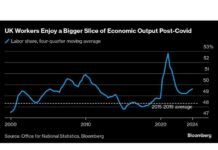California has recently made a bold move by tightening regulations on the carbon intensity of fuels sold in the state. Despite concerns that this decision could potentially increase the price of gasoline by nearly 50 cents per gallon, the California Air Resources Board voted to amend the Low Carbon Fuel Standard program. This program sets annual targets for the carbon intensity of fuels, with producers who exceed these targets being required to purchase credits from suppliers of low- or zero-carbon fuels.
The decision to accelerate the decline of these targets has raised alarm among consumer advocates, especially after a report from the board’s staff predicted a significant increase in gasoline prices by 2025. California already has some of the highest gas prices in the nation, attributed to factors such as high taxes and the use of specialized fuel blends. Currently, the average cost of a gallon of regular gasoline in California is $4.29, which is $1.22 higher than the national average.
Despite calls from politicians to delay the vote due to the potential economic impact, the board’s Chair, Liane Randolph, emphasized the urgency of taking action to combat climate change. Randolph highlighted the increasing frequency and severity of natural disasters such as wildfires, hurricanes, and droughts, emphasizing the underestimated health and economic impacts of these events.
Governor Gavin Newsom, who is already facing criticism over high gas prices, has been at odds with the oil industry. He has accused oil companies of price-gouging and recently signed legislation mandating refiners to maintain minimum fuel inventories to prevent price spikes. Additionally, Newsom established the state’s first watchdog agency to investigate the oil industry, demonstrating his commitment to addressing the concerns of Californians.
As California continues its efforts to phase out fossil fuels and prioritize environmental sustainability, the decision to tighten fuel regulations is a significant step towards reducing carbon emissions and combating climate change. While there may be short-term economic consequences, the long-term benefits of a cleaner and more sustainable future are invaluable. By taking proactive measures now, California is setting a precedent for other states and countries to follow in the fight against climate change.






















